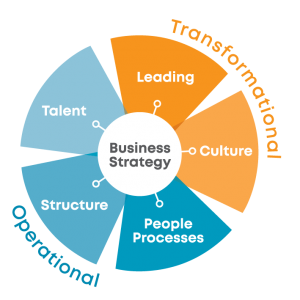Growing your business internationally – an HR Director’s key tips for success
Any business owner considering a move into a new territory will know what a significant undertaking it is, both financially and operationally. But what is not talked about enough is the people aspect. From experience with clients, HR Director Ana Hay shares the key people aspects a UK business growing internationally should consider.
I’ve worked with several UK businesses that have opened sites abroad and seen first-hand the impact it can have on current and future staff. If not planned for, these issues can cause a lot of stress and delay further down the line.
So, what are the key people considerations for a UK business growing internationally?
Get your business plan nailed down
Before you even think about a people plan, make sure you have a clear business plan in place and consult widely before finalising it. The finances and operational needs will then guide your hiring and staffing decisions. This is especially important in smaller businesses, where individual employees are a relatively significant cost relative to the business; a 20-strong company taking on a new person is 5% of its labour cost.

At People Puzzles we use a ‘wheel’ to create people strategies for growing businesses, regardless of whether they’re expanding abroad or not, and always at the heart of that people strategy is the business plan.
Assuming the business plan has been thought through and is sound, I recommend giving serious thought to the following:
1. Expertise in the regulatory differences
Business leaders will research new markets and examine the financial aspects of moving into a new territory – but will often delegate the HR considerations to someone else. That person will need to be trained in the new country’s regulatory employment framework. Don’t underestimate the time this takes; I remember a colleague in a previous workplace spending four hours a week for months researching the Canadian market, even before a decision to move there was made. Unless one of your employees has expertise, the learning curve is steep if you’re dipping into a new country for the first time.
2. Factor in time and travel to embed your culture
SMEs often work hard to create a good culture, but if you open an office in another country, that culture does not travel through the air on its own! Overseas operations are often tiny operations – sometimes just one person – operating in that new country. It will be hard for them to assimilate into your company culture. They’ll have the tangibles, i.e. the product or service you’re offering. But how do you embed the intangibles, the way of working that is unique to your business?
One way around this is to send a current employee, although this can be costly. Hiring locally will likely be less costly but do factor in regular travel to and from the new site to help embed your company culture. You are hugely dependent on the people or person you hire to succeed in that country, so consider what would work best to support them. This cost is hard to quantify, but worth acknowledging even if you don’t put a price on it.
3. Managing remotely
While we are all much more familiar with working remotely post-pandemic, don’t assume a remote team working will work in the same way if they’re abroad. Different countries have their own working culture and attitude to remote working. If you have someone in your local team managing the overseas operations, they’ll need time, space and support to do that properly, even if they are very familiar with the new territory. Make sure you build in this cost in the planning stage.
4. Have a contingency
Expanding abroad is difficult to retreat from once committed, so try to plan for every eventuality. Make provision for unforeseen circumstances and unexpected costs, such as extra travel or training.
5. Other considerations
Each country will have its own unique challenges, even if your new territory shares the same language. One of the most challenging countries I’ve found to move into is the US, simply because each state has different HR laws. And while logistically, a service might be easier to take abroad than a product; in some ways it can be more difficult, if you take into account cultural differences and expectations.
Conclusion
In short, don’t underestimate the challenges of expanding internationally; in many ways it’s nearly as difficult as starting again. That said, the people considerations I’ve covered here needn’t hold back your plans. In fact, if thought through beforehand, it should fast-track your business plan as you’ll spend a lot less time firefighting and more time focused on delivering the growth you’re aiming for.
If you’re considering expanding internationally, why not let one of our experienced HR experts help? Call People Puzzles on 020 3633 6830 or visit peoplepuzzles.co.uk to find out how we help businesses across the UK fulfil their ambitious growth plans.

People Director, Ana Hay

